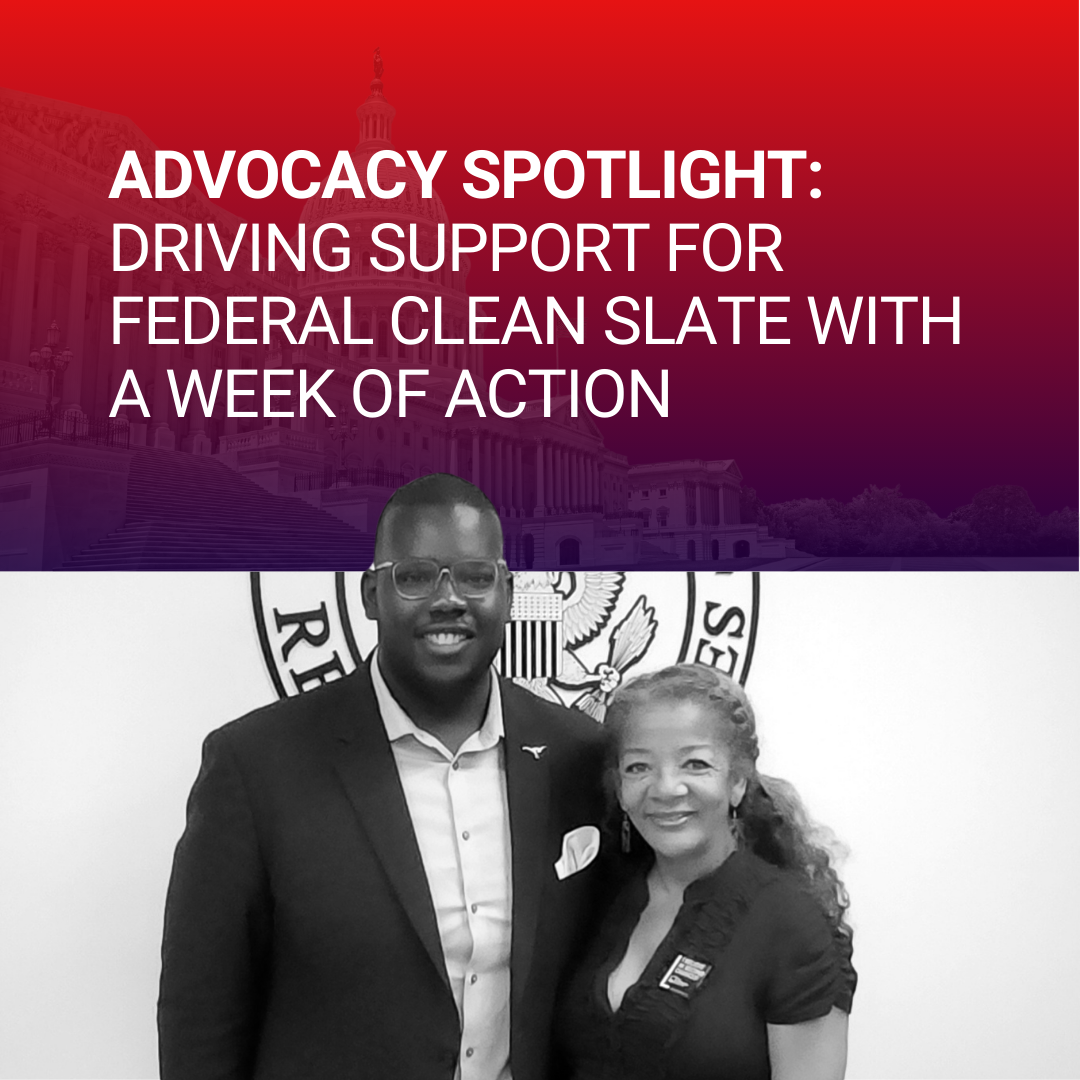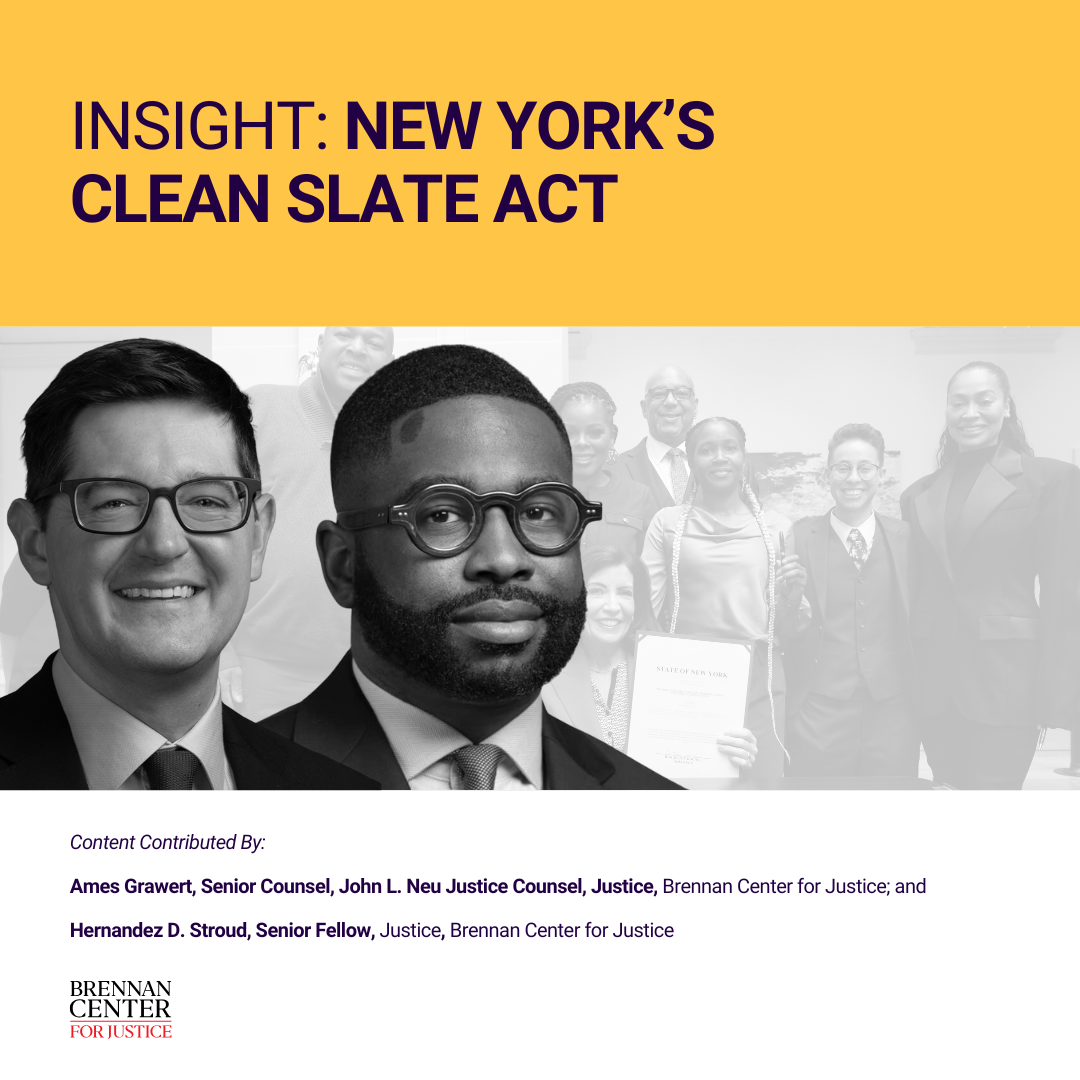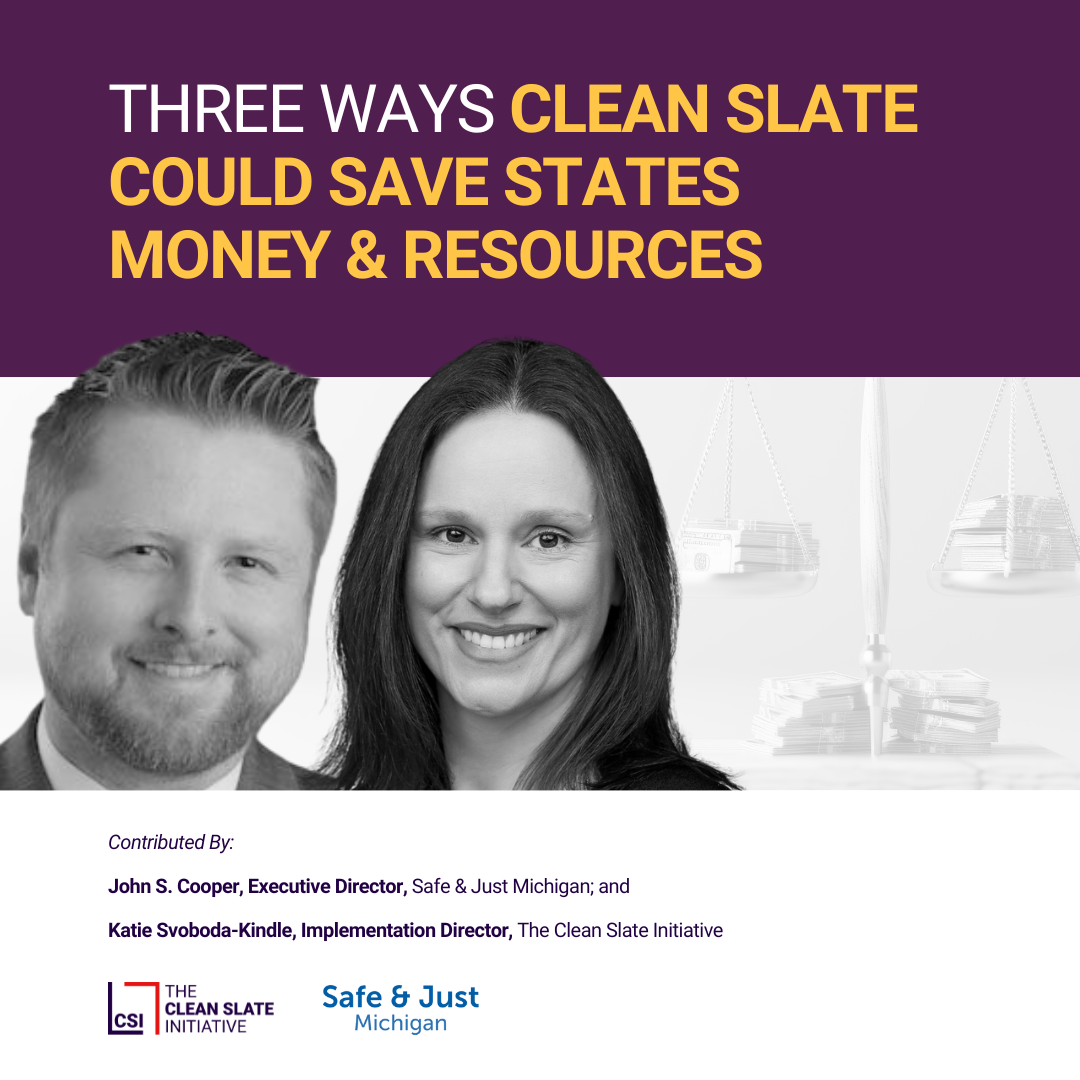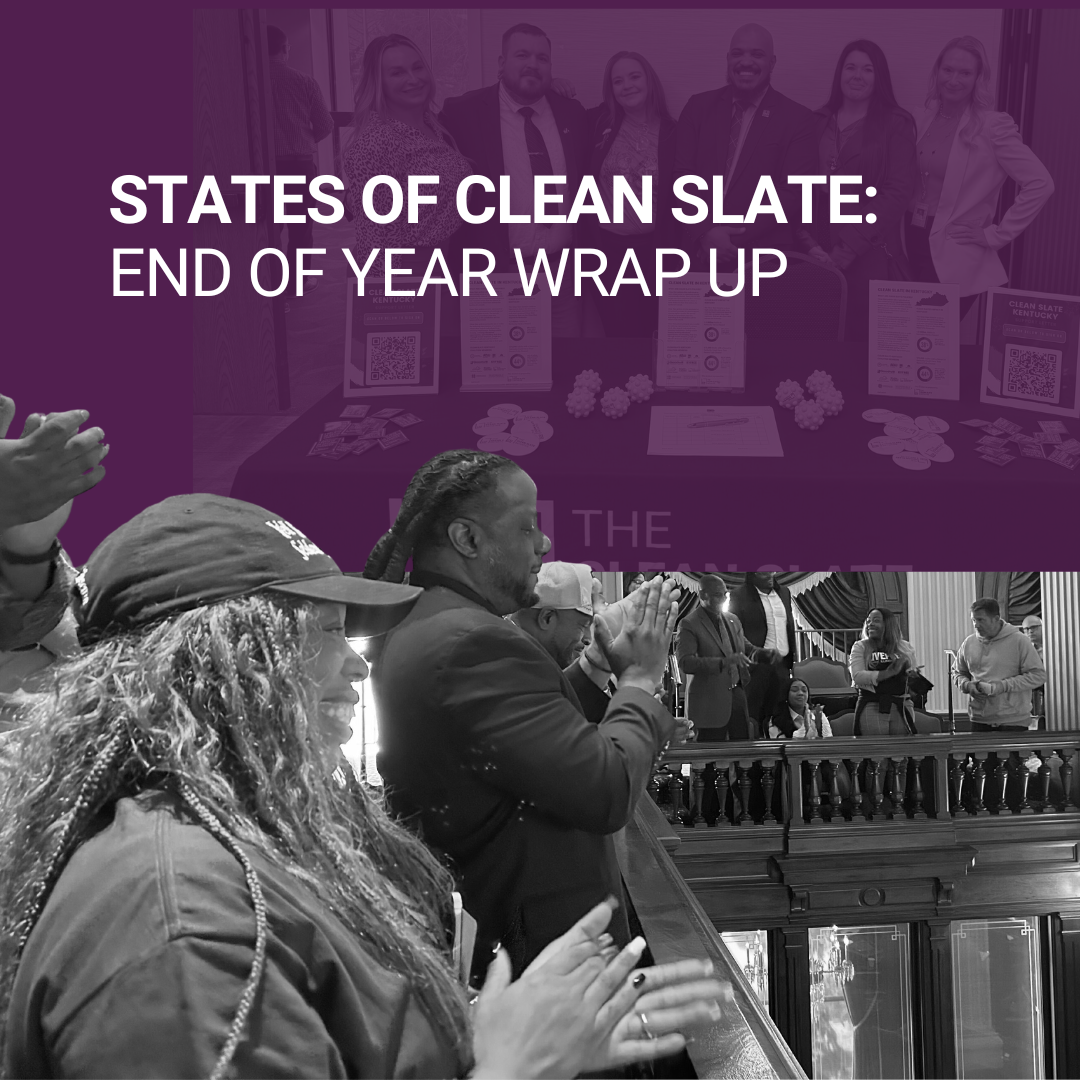The Strategy Behind Clean Slate

Since The Clean Slate Initiative (CSI) started in 2019, both our organization and the Clean Slate work happening across the country have grown exponentially.
In just six years since the first Clean Slate law was passed in Pennsylvania, twelve states have passed Clean Slate legislation that meets CSI policy minimums — making over 15 million people in America eligible for full or partial record clearance.
Currently, Clean Slate campaigns are active in more than 15 states, and a coordinated campaign to pass Clean Slate legislation on the federal level is underway.
The support and success behind Clean Slate continue to grow — but it’s not happening by chance. There’s a comprehensive, multi-year strategy behind the work that we do. That strategy is laid out in our Strategic Plan in detail, available on our website, and it involves a few key elements that propel this movement forward every day:
Create and Support Durable, Multi-Stakeholder Coalitions That Center Directly Impacted People
To work successfully across diverse contexts, our strategy relies on creating durable, bipartisan, multi-stakeholder coalitions that center directly impacted people. These advocates are best positioned to design and lead effective coalitions, provide input on legislation, and push for impactful changes based on their own experiences.
As a national organization, CSI has a birdseye view on what works and can share lessons across states, leverages relationships with influential leaders on both sides of the aisle, and dedicates financial resources and strategic thought partnership to Clean Slate campaigns. Together, these assets give state-based coalitions the tools they need for legislative success.
Implement Clean Slate Legislation
Implementing automatic record clearance for people eligible for relief requires that government entities have the systems and processes in place to automatically screen records for clearance eligibility and to clear relevant records. We also know that this must be accompanied with notification efforts to ensure people who received relief, know their record status and are able to act with that information. And, background check providers must also have and report up-to-date information. Accomplishing all of these components can take several intermediary steps.
We tackle implementation planning, and challenges, during every phase of a Clean Slate campaign. From assessing existing systems and technology infrastructure during the state landscaping phase to providing a range of assistance to manage the transition during implementation phase, we’re a support partner every step of the way.
Redefine the Narrative Around People with Records
Ultimately, ensuring individuals receive the fullest extent of relief also requires shifting hearts and minds so that we can cut through stigma and bias and fundamentally reorient how society thinks about people with records. We actively work to change the common narratives around people with records — including that they are less of a person than people without records or that they are violent and dangerous.
We are investing in a two-year narrative research project with Goodwin Simon Strategic Research to help advance this important work. An advisory group representing diverse perspectives involved in Clean Slate will help steward this important project.
Build the Capacity of Directly Impacted Leaders
Central to our values and to our ability to build durable campaigns is developing the leadership skills and capacity of directly impacted leaders and the organizations they run. In all of the states we work in, we are intentionally building relationships with directly impacted leaders. We bring these leaders together to surface common challenges and identify capacity-building opportunities we may be best positioned to provide or facilitate connections to, including connections to seasoned leaders in the field. With this approach, we not only build capacity for Clean Slate, but for future movements and generations.
Investing in Learning and Collaboration Across States and Partners
As a national organization, we have the unique ability to foster connections across states and surface and share best practices. We host monthly state partner calls so leaders can hear updates directly and strategize or troubleshoot common challenges together. We also facilitate connections between campaigns that are in similar political contexts and/or phases of work.
CSI also hosts convenings for existing and potential partners to disseminate knowledge and tools for writing strong Clean Slate legislation, as well as tips for how to leverage data to push campaigns forward and other technical and strategic advice. See the sizzle reel from our 2024 convening in Philadelphia here! These convenings provide the additional benefit of relationship-building so state coalitions feel part of the larger movement and can connect with partners across states who they can call on when needed. This sense of community is particularly important given how personal and hard this work is for many of its leaders, who are often directly impacted by the issue.
Evaluation and Research
We are committed to ongoing learning to both improve our approach and build a collective understanding of the benefits of Clean Slate legislation. We partner with independent research institutions to pursue research across a number of categories:
- Informing policy design and implementation: Researchers will document the scope, technical landscape, and costs of Clean Slate reforms in the 12 states that have passed Clean Slate laws.
- Expanding evidence base on the impact of records and clearance: Through rigorous quantitative impact evaluation methodologies and qualitative approaches that center the perspectives of people directly impacted by the legal system, we aim to generate research that assesses the impact of records and the automated efforts to clear them.
- Generating insights about how eligible individuals’ awareness (or lack thereof) of Clean Slate eligibility affects the directly impacted, as well as what the most effective strategies are to notify people about the benefits of Clean Slate.
- Ensuring the effective implementation of Clean Slate laws by examining how accurately and efficiently records are cleared and updated across government and third-party background check companies’ databases.
.avif)
.avif)




.png)
